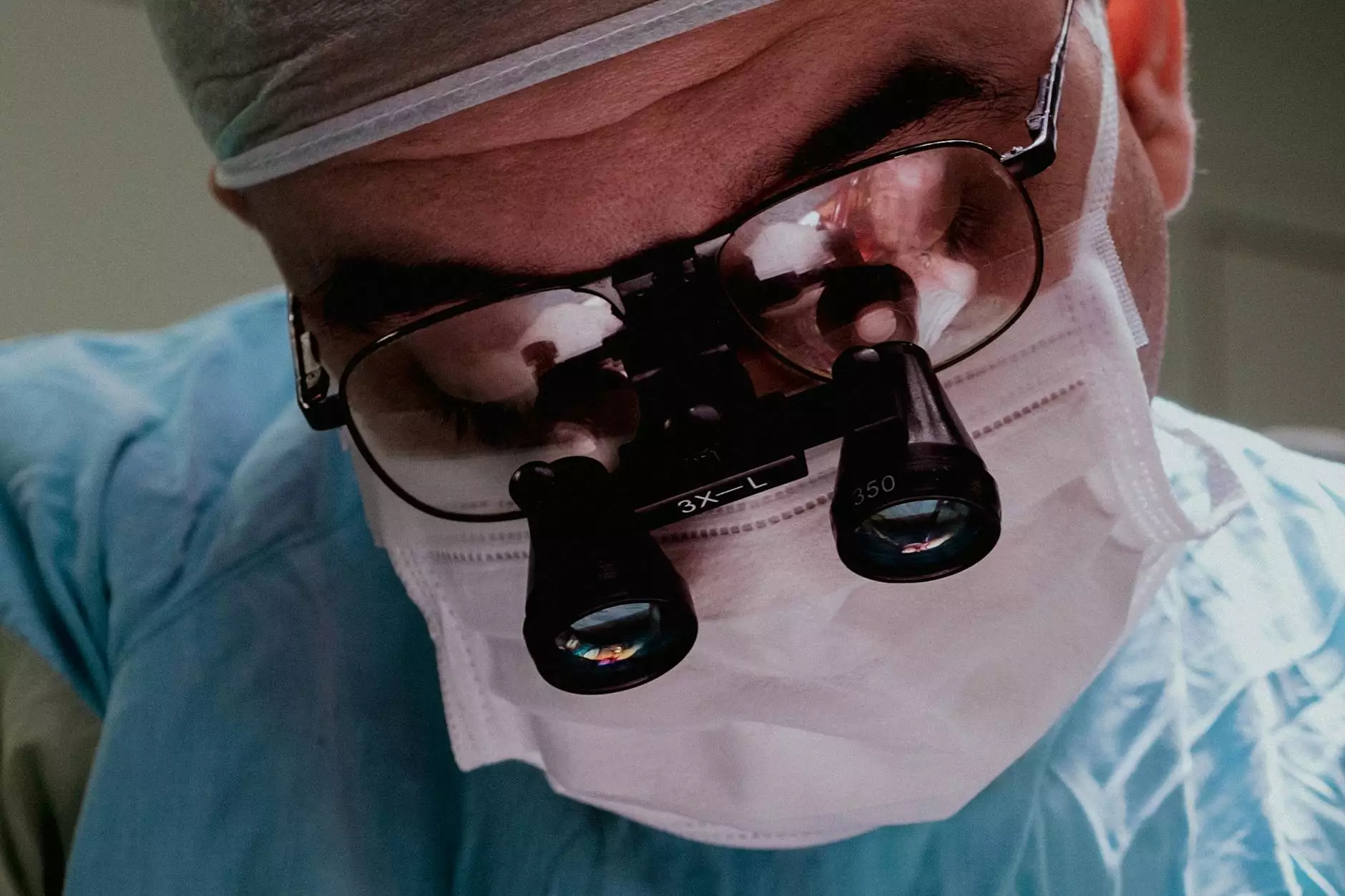Understanding Thoracic Surgery: The Role of Doctors of Thoracic Surgery

When it comes to complex medical conditions related to the chest, the expertise of doctors of thoracic surgery is paramount. These highly skilled professionals specialize in surgical procedures that address problems in the lungs, esophagus, heart, and other organs within the thorax. This article delves deep into the field of thoracic surgery, highlighting the significance of these doctors, the conditions they treat, their methodologies, and the impact they have on patient health.
The Importance of Thoracic Surgery
Thoracic surgery is essential for diagnosing and treating a variety of ailments that can severely affect health. The thoracic cavity houses some of the most vital organs, and any dysfunction can lead to serious complications. Here are some key points regarding the importance of thoracic surgery:
- Cancer Treatment: Doctors of thoracic surgery play a crucial role in managing thoracic cancers, including lung cancer, esophageal cancer, and mediastinal tumors. They employ advanced surgical techniques to remove tumors and improve survival rates.
- Trauma Care: In cases of traumatic injuries to the chest, thoracic surgeons are essential for repairing damaged structures and restoring function.
- Heart and Lung Conditions: These surgeons address conditions such as coronary artery disease (CAD), emphysema, and other life-threatening disorders that require surgical intervention.
- Improved Diagnosis: They also assist in diagnosing complex conditions through various minimally invasive techniques, allowing for quicker recovery times and less postoperative pain.
Conditions Treated by Thoracic Surgeons
Doctors of thoracic surgery are equipped to handle a wide range of conditions. Some of the most common issues addressed include:
- Lung Diseases: Chronic Obstructive Pulmonary Disease (COPD), pulmonary nodules, and lung infections.
- Esophageal Disorders: Conditions like achalasia and gastroesophageal reflux disease (GERD) that might require surgical correction.
- Heart Surgery: Including valve repairs, minimally invasive cardiac procedures, and coronary bypass grafting.
- Chest Wall Abnormalities: Such as pectus excavatum which impacts both aesthetics and function.
Advanced Techniques in Thoracic Surgery
The field of thoracic surgery has evolved significantly over the years, incorporating cutting-edge techniques that enhance surgical efficacy and minimize patient discomfort. Here are several prominent methodologies employed by doctors of thoracic surgery:
1. Video-Assisted Thoracoscopic Surgery (VATS)
This minimally invasive technique uses small incisions and a camera to guide surgical instruments, significantly reducing recovery time and pain compared to traditional open surgery.
2. Robotic-Assisted Surgery
Robotic systems enhance the surgeon's ability to perform precise and delicate procedures. The use of robotics in thoracic surgery allows for enhanced visualization and greater maneuverability within the thorax.
3. Minimally Invasive Techniques
In addition to VATS, other minimally invasive approaches have been developed, such as endoscopic procedures that enable surgeons to operate with reduced trauma to the body.
4. Enhanced Recovery After Surgery (ERAS)
Thoracic surgery practices are increasingly adopting ERAS protocols, which emphasize the integration of preoperative education, nutritional support, and multimodal analgesia to promote quicker recovery of patients.
The Training and Expertise of Thoracic Surgeons
To become a doctor of thoracic surgery, a rigorous educational pathway is essential. This typically involves:
- Medical School: Completing a medical degree from a recognized institution.
- General Surgical Residency: Undergoing a residency in general surgery, which typically lasts 5 years.
- Fellowship Training: Following residency, aspiring thoracic surgeons must complete a specialized fellowship in thoracic surgery, lasting 1-3 years and focusing on advanced surgical techniques and patient management.
These extensive training requirements ensure that thoracic surgeons possess the necessary skills to handle complex surgical procedures effectively.
Patient Care and Consultations
Before any surgical intervention, it is crucial for doctors of thoracic surgery to conduct thorough consultations with their patients. This process typically includes:
- Comprehensive Evaluations: Assessing the patient’s medical history, current health status, and any previous treatments.
- Diagnostic Imaging: Utilizing technologies such as CT scans, MRIs, and X-rays to gain insight into the thoracic cavity's condition.
- Personalized Treatment Plans: Collaborating with patients to devise tailored surgical strategies that align with their specific health needs.
Postoperative Care and Recovery
After surgery, doctors of thoracic surgery are responsible for ensuring that patients achieve optimal recovery. This includes:
- Monitoring: Keeping an eye on vital signs and symptoms to prevent postoperative complications.
- Pain Management: Implementing pain relief strategies that are individualized for each patient to enhance comfort during recovery.
- Rehabilitation: Coordinating with physical therapists to facilitate a smooth rehabilitation process, critical for restoring lung function and overall health.
Choosing the Right Thoracic Surgeon
Selecting a thoracic surgeon is a crucial step for patients facing surgery for chest conditions. When considering this decision, one should evaluate:
- Experience: Look for a surgeon with substantial experience in performing the specific procedure required.
- Board Certification: Ensure the surgeon is board-certified in thoracic surgery, which signifies extensive training and expertise.
- Hospital Affiliations: Consider the quality of the hospitals where the surgeon operates, as higher-quality hospitals often lead to better outcomes.
- Patient Reviews: Reading feedback from previous patients can provide insights into the surgeon's skills and bedside manner.
Conclusion
Doctors of thoracic surgery are a cornerstone of modern healthcare, specializing in the treatment of complex chest-related conditions that demand a high level of proficiency and care. By employing advanced techniques and maintaining a solid focus on patient welfare, these surgeons play an essential role in enhancing patient outcomes and improving quality of life for those with thoracic diseases. Their contributions extend beyond the operating room, as they are critical in educating patients and ensuring a comprehensive approach to care. As the field of thoracic surgery continues to advance, patients can look forward to even better treatment options and recovery experiences.
For more information about thoracic surgery and to find experienced doctors of thoracic surgery, visit Neumark Surgery.









